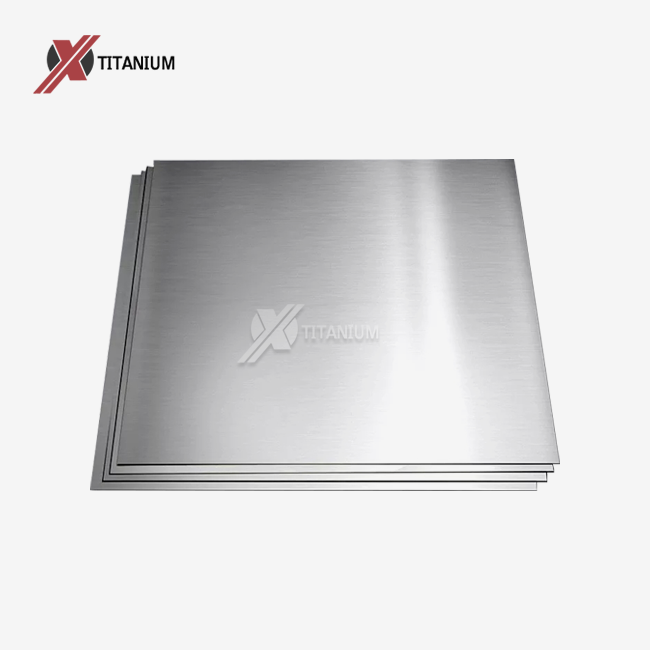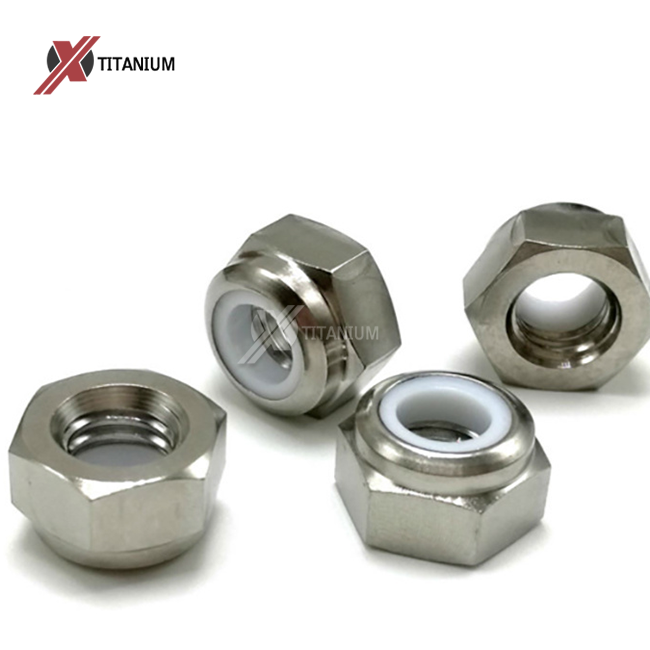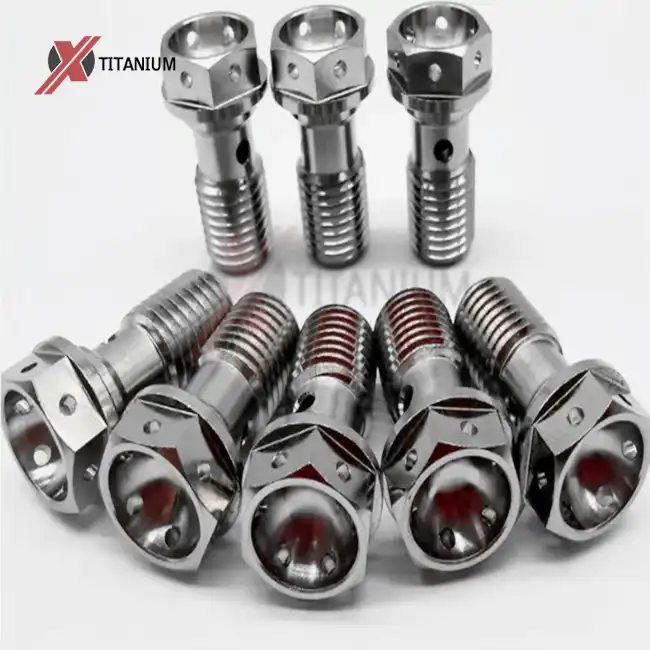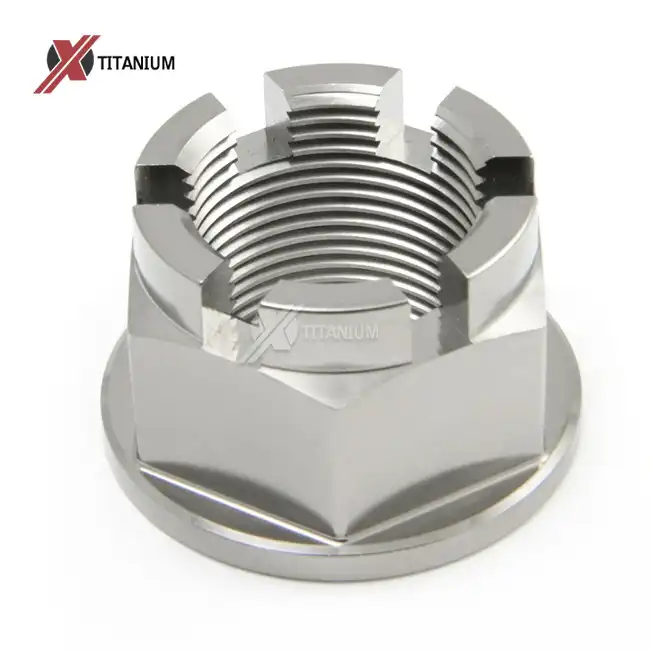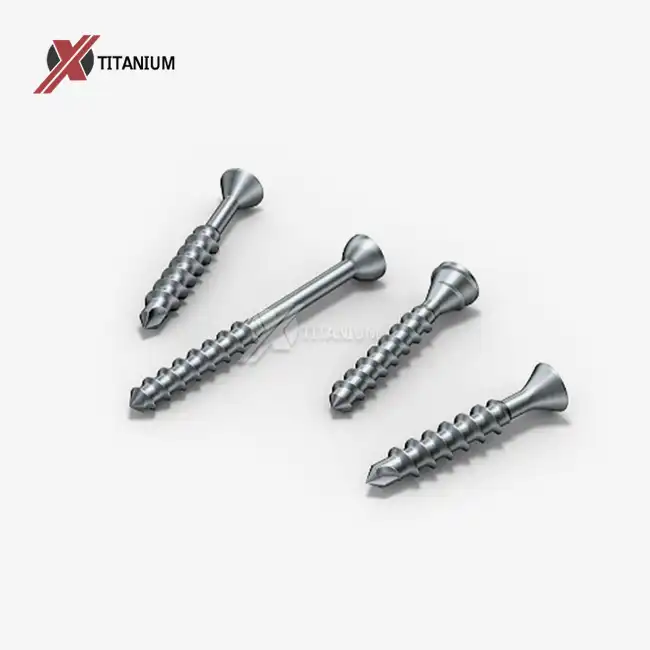Understanding the Composition and Properties of Grade 5 Titanium Plate
Grade 5 titanium plate, composed of 90% titanium, 6% aluminum, and 4% vanadium, boasts a unique set of properties that set it apart from other titanium grades. This alpha-beta alloy combines the strength of alpha titanium with the formability of beta titanium, resulting in a material with exceptional characteristics.
The addition of aluminum and vanadium to the titanium base significantly enhances the mechanical properties of Grade 5 titanium plate. Aluminum acts as an alpha stabilizer, increasing strength and reducing density, while vanadium serves as a beta stabilizer, improving formability and heat treatment response. This synergistic combination results in a material with an impressive strength-to-weight ratio, making it a preferred choice in aerospace and high-performance applications.
Grade 5 titanium plate exhibits remarkable tensile strength, typically ranging from 895 to 1000 MPa, surpassing that of Grade 2 titanium. Its yield strength, usually between 828 and 924 MPa, further underscores its superiority in load-bearing applications. Despite its high strength, Grade 5 titanium plate maintains good ductility, with elongation values ranging from 10% to 15%.
Microstructure and Heat Treatment
The microstructure of Grade 5 titanium plate plays a crucial role in its performance. In its annealed condition, the alloy displays a fine, equiaxed alpha phase with intergranular beta, contributing to its balanced mechanical properties. Heat treatment can further modify this microstructure, allowing for customization of properties to suit specific applications.
Solution treating and aging (STA) is a common heat treatment process for Grade 5 titanium plate. This process involves heating the material to temperatures above the beta transus (around 995°C), followed by rapid cooling and subsequent aging at lower temperatures. The resulting microstructure consists of fine alpha needles within a transformed beta matrix, leading to enhanced strength and toughness.
Corrosion Resistance Mechanisms in Grade 5 Titanium Plate
The exceptional corrosion resistance of Grade 5 titanium plate stems from its ability to form a stable, adherent oxide layer on its surface. This passive film, primarily composed of titanium dioxide (TiO2), acts as a protective barrier against corrosive environments. The presence of aluminum in the alloy further enhances this passivation process, contributing to the formation of a more robust and resilient oxide layer.
In chloride-rich environments, such as seawater, Grade 5 titanium plate demonstrates superior resistance to pitting and crevice corrosion compared to Grade 2. The vanadium content in Grade 5 plays a crucial role in this enhanced performance, as it helps stabilize the passive film and increases its resistance to breakdown in aggressive media.
Grade 5 titanium plate also exhibits excellent resistance to stress corrosion cracking (SCC), a phenomenon where the combined effect of tensile stress and a corrosive environment can lead to premature failure. The alloy's resistance to SCC is attributed to its balanced microstructure and the synergistic effect of its alloying elements, which help mitigate crack initiation and propagation.
Galvanic Corrosion Considerations
When considering galvanic corrosion, Grade 5 titanium plate performs admirably in most situations. Its nobility in the galvanic series positions it favorably against many other metals and alloys. However, precautions should be taken when coupling Grade 5 titanium with less noble metals, as it may accelerate the corrosion of the latter in certain electrolytes.
In highly oxidizing acids, such as nitric acid, Grade 2 titanium may exhibit slightly better corrosion resistance than Grade 5. This is due to the more straightforward passivation of commercially pure titanium in these environments. However, Grade 5 titanium plate still maintains excellent resistance in most oxidizing media and outperforms Grade 2 in a broader range of corrosive environments.
Applications Leveraging Grade 5 Titanium Plate's Corrosion Resistance
The superior corrosion resistance of Grade 5 titanium plate, combined with its high strength-to-weight ratio, makes it an ideal material for a wide range of demanding applications across various industries. Its ability to withstand harsh environments while maintaining structural integrity has led to its widespread adoption in critical sectors.
In the aerospace industry, Grade 5 titanium plate finds extensive use in aircraft structures, engine components, and fasteners. Its corrosion resistance is particularly valuable in areas exposed to aggressive fluids and atmospheric conditions, such as landing gear assemblies and hydraulic systems. The material's high strength-to-weight ratio also contributes to fuel efficiency and overall aircraft performance.
The marine industry benefits greatly from Grade 5 titanium plate's exceptional resistance to seawater corrosion. It is commonly used in shipbuilding, offshore oil and gas platforms, and desalination plants. Applications include heat exchangers, propeller shafts, and structural components exposed to marine environments. The alloy's resistance to pitting and crevice corrosion in chloride-rich media makes it an excellent choice for long-term reliability in these challenging conditions.
Chemical Processing and Biomedical Applications
In chemical processing industries, Grade 5 titanium plate serves as a material of choice for reactors, storage tanks, and piping systems handling corrosive chemicals. Its ability to resist a wide range of acids, bases, and organic compounds ensures long service life and minimal maintenance requirements. The alloy's biocompatibility and corrosion resistance in bodily fluids have also led to its widespread use in biomedical applications, including orthopedic implants and surgical instruments.
The automotive industry has increasingly adopted Grade 5 titanium plate in high-performance vehicles, particularly in racing applications. Its corrosion resistance, combined with high strength and low weight, makes it ideal for components such as exhaust systems, suspension parts, and engine valves. The material's ability to withstand high temperatures and resist corrosion from combustion byproducts contributes to improved vehicle performance and longevity.
Conclusion
In conclusion, Grade 5 titanium plate demonstrates superior corrosion resistance compared to Grade 2 in most environments, making it an invaluable material for demanding applications. Its unique composition, featuring aluminum and vanadium alloying elements, enhances its resistance to various forms of corrosion, including pitting, crevice corrosion, and stress corrosion cracking. The exceptional strength-to-weight ratio and corrosion resistance of Grade 5 titanium plate have led to its widespread adoption in aerospace, marine, chemical processing, and biomedical industries.
As a grade 5 titanium plate factory, Baoji Chuanglian New Metal Material Co., Ltd. offers high-quality Grade 5 titanium plates tailored to meet specific industry requirements. For more information on our products or to discuss your titanium needs, please contact us at info@cltifastener.com or djy6580@aliyun.com.
FAQs
What is the typical thickness range for Grade 5 titanium plates?
Our Grade 5 titanium plates are available in thicknesses ranging from 0.5mm to 150mm, catering to various application requirements.
Can Grade 5 titanium plates be customized for specific applications?
Yes, we offer customization services for Grade 5 titanium plates, including specific dimensions, surface finishes, and heat treatments to meet your unique needs.
How does the corrosion resistance of Grade 5 titanium plates compare to stainless steel?
Grade 5 titanium plates generally offer superior corrosion resistance compared to most stainless steels, particularly in chloride-rich environments and at elevated temperatures.
What are the main industries that use Grade 5 titanium plates?
Grade 5 titanium plates are widely used in aerospace, marine, chemical processing, biomedical, and high-performance automotive industries due to their excellent properties.
How can I ensure the quality of Grade 5 titanium plates for my application?
We implement strict quality control measures, including material testing, dimensional inspection, and performance testing to ensure our Grade 5 titanium plates meet the highest industry standards.
References
1. Lutjering, G., & Williams, J. C. (2007). Titanium (2nd ed.). Springer-Verlag Berlin Heidelberg.
2. Peters, M., Kumpfert, J., Ward, C. H., & Leyens, C. (2003). Titanium alloys for aerospace applications. Advanced Engineering Materials, 5(6), 419-427.
3. Schutz, R. W., & Thomas, D. E. (1987). Corrosion of titanium and titanium alloys. ASM Handbook, 13, 669-706.
4. Boyer, R. R. (1996). An overview on the use of titanium in the aerospace industry. Materials Science and Engineering: A, 213(1-2), 103-114.
5. Rack, H. J., & Qazi, J. I. (2006). Titanium alloys for biomedical applications. Materials Science and Engineering: C, 26(8), 1269-1277.
